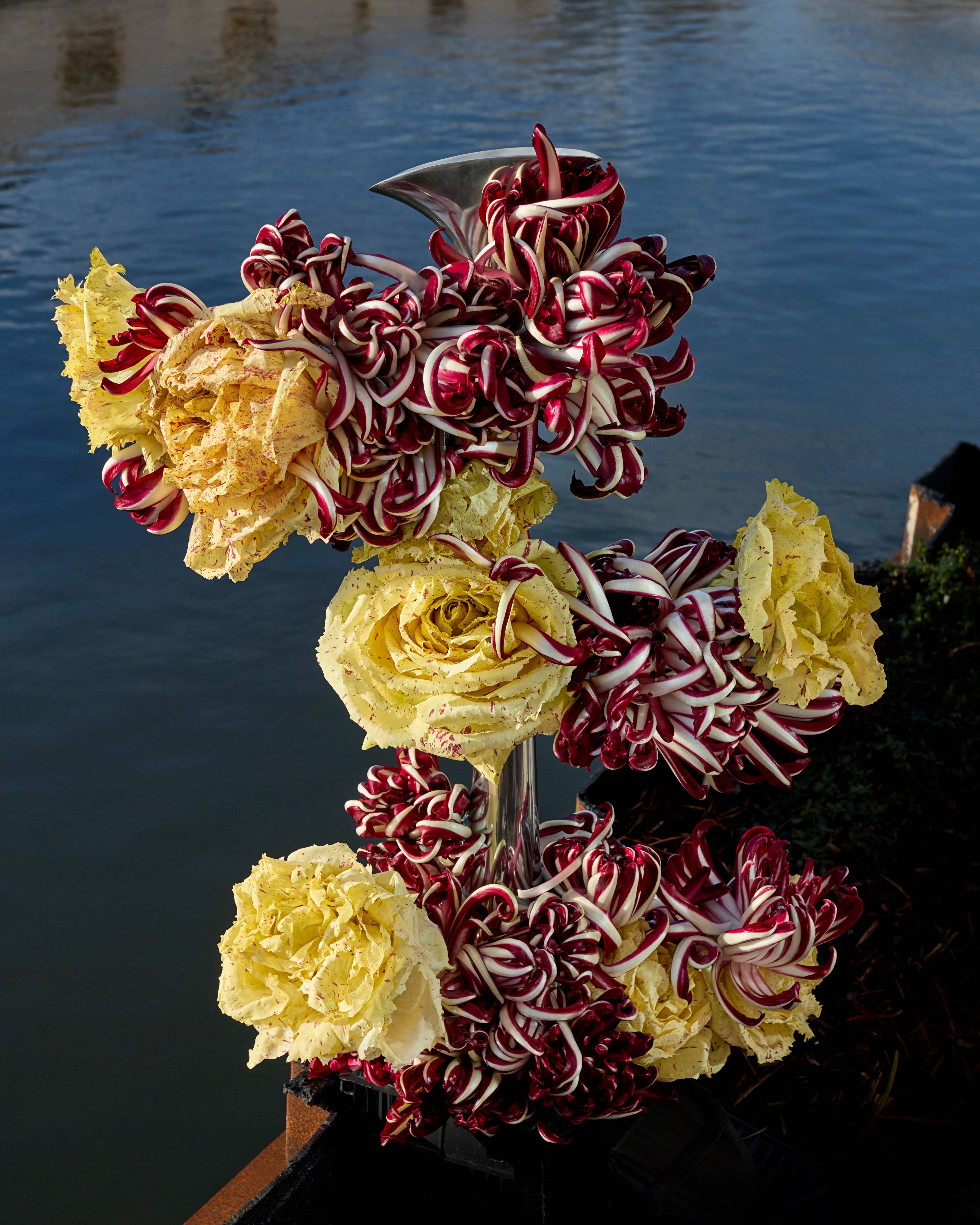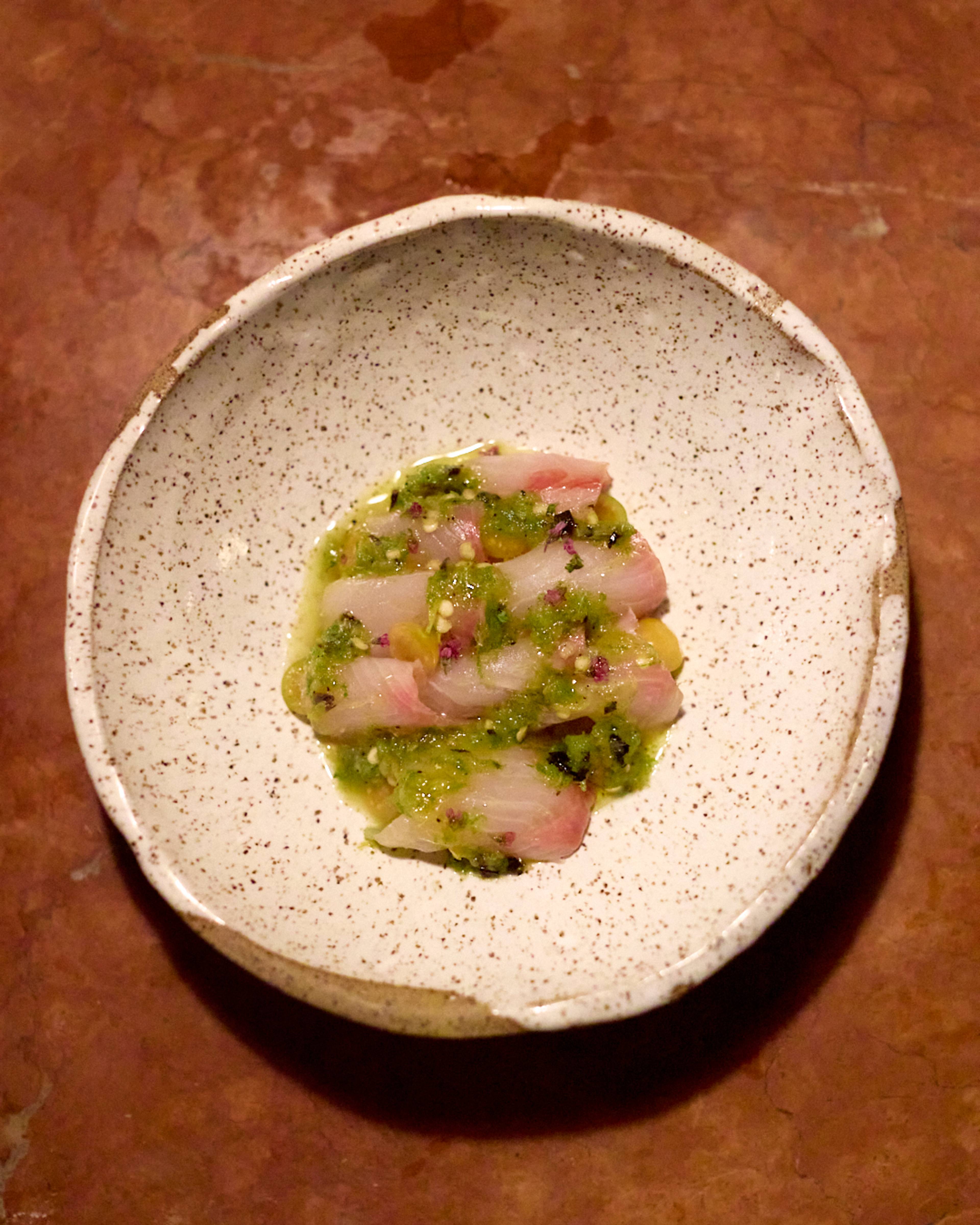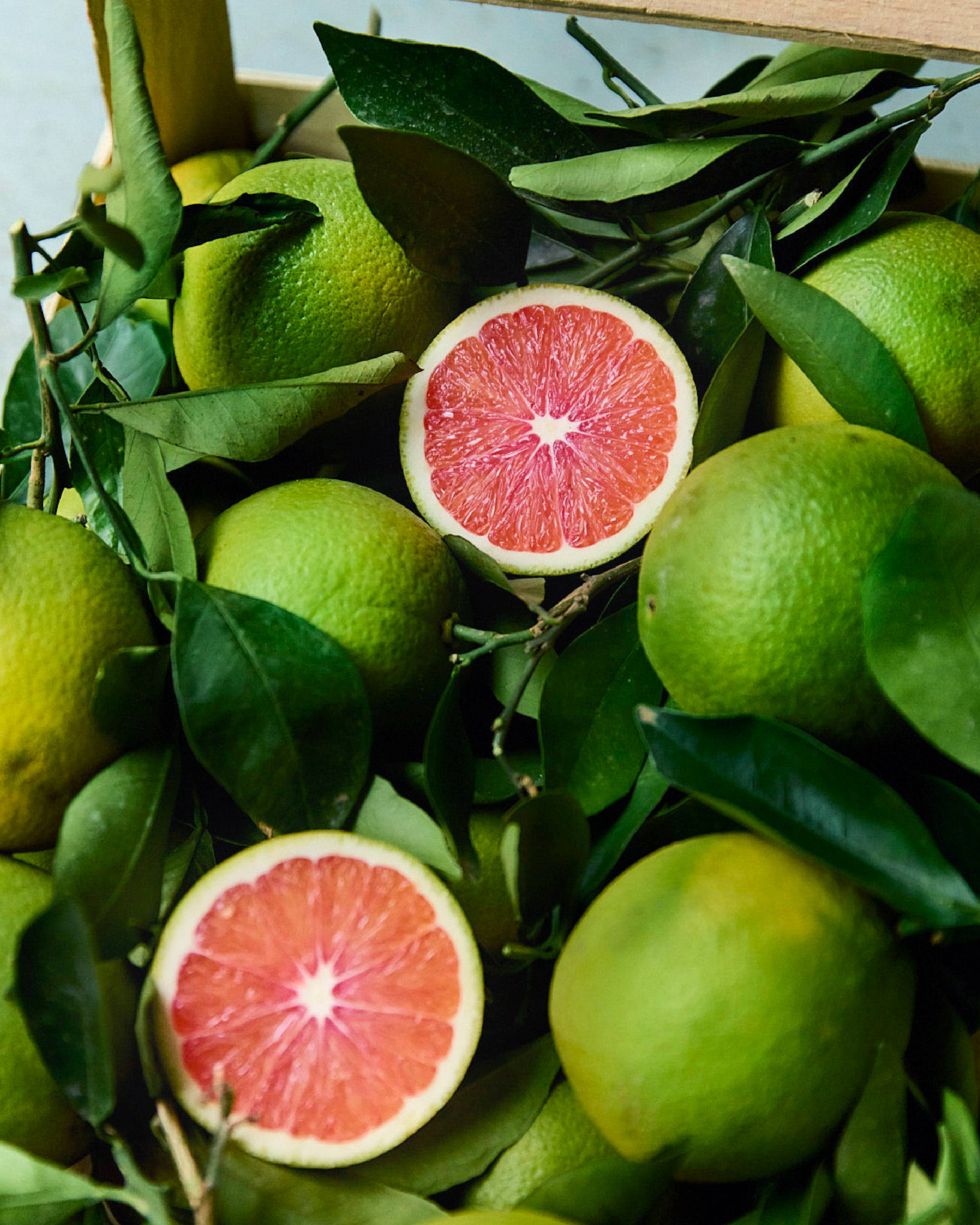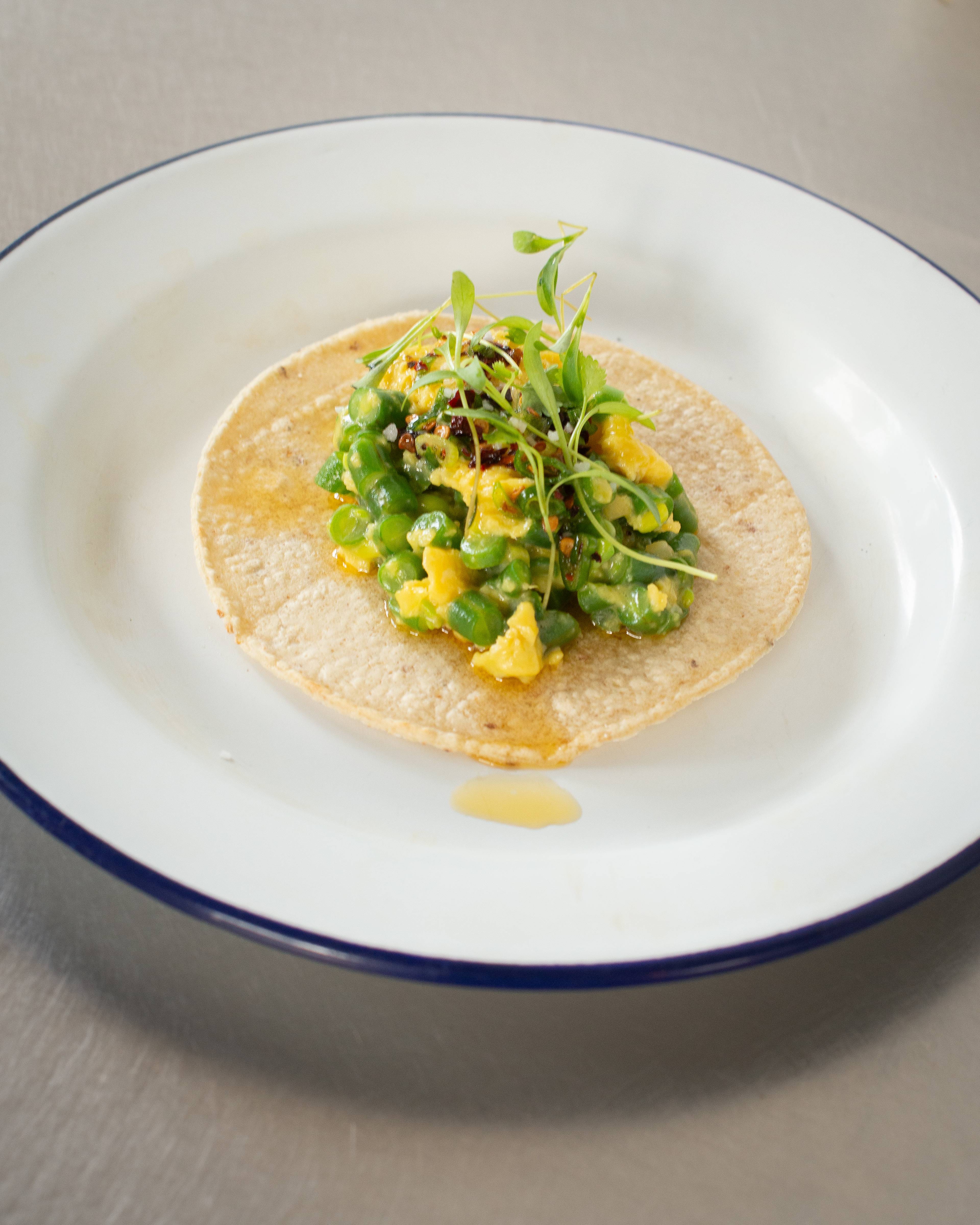2024 Farm Fund Grant
Seed sovereignty, food justice, climate resilience, access to land — that’s what we’re backing with this year's Farm Fund.
In the year 2023-2024, we hit our biggest fundraising target to date: $65K. This is all thanks to the support of our community who joined us for warehouse dinners, attended Earthrise Evenings, sampled Alma sandwiches at Groundswell and drunk bottles of seasonal Momo Kombucha. These funds mean we’ve backed more young growers than ever before.
The Farm Fund grant is split between six growing projects. SWIPE TO READ THEIR STORIES.
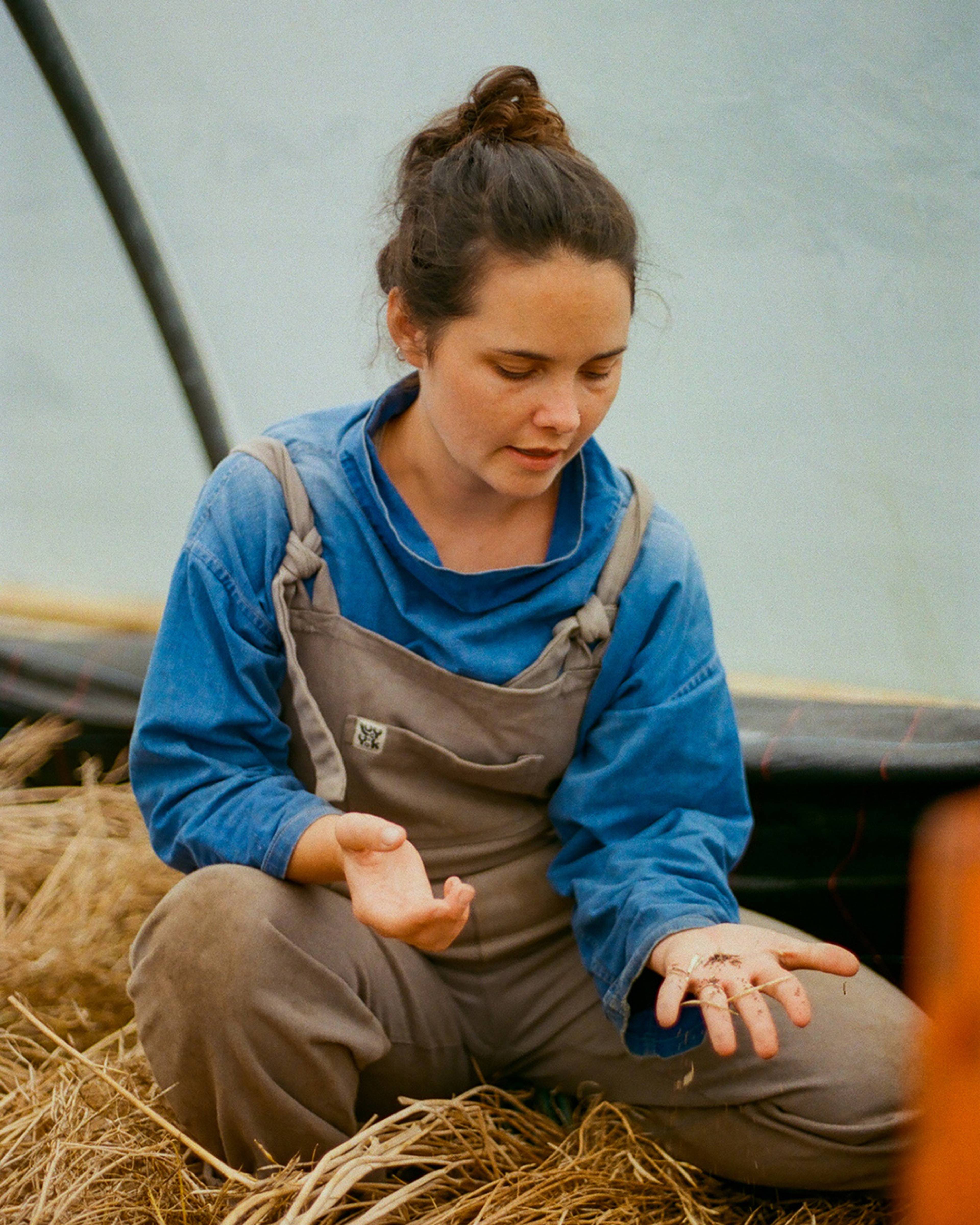
Winnow Farm Seeds
Bridport, Dorset, UK
Grant: £7,125
"Seed saving is such a tactile thing. Plants are so generous - you can grow eight plants and have a huge bucket of seed that you get to run your hands through."
Winnow Farm Seeds is a small, farm-based seed company specialising in robust and flavorful varieties, founded by grower and seed sovereignty educator Ellen. This grant will enable her to expand on-farm seed drying infrastructure - vital in the wet, UK climate - provide more crop isolation space and as well as a shelter for a dynamic programme of on-farm seed saving workshops.
"For me, for the varieties that I’m excited about, it’s all about flavor, the culinary qualities – how is it used? How is it eaten? – it feels like something no one else is doing."
It’s a project that is a decade in the making for Ellen, building on the solid foundations of working as a grower at the iconic Trill Farm Garden in Devon and as South West coordinator for the Seed Sovereignty Programme. This grant will enable her to expand on-farm seed drying infrastructure - vital in the wet, UK climate -, provide more crop isolation space and as well as a shelter for a dynamic program of on-farm seed saving workshops.
Access to open-pollinated, grower-produced seeds in the UK is limited, and importing seed from Europe has become even harder post-Brexit. In the UK, farm-scale seed production is typically done in the South East of England, with specialized industrial equipment and yield as its primary driver. Ellen comes to seed production from a very different angle: to tackle the agricultural with the culinary and the cultural.
"Having genetically diverse varieties is really important in terms of organic growing because it gives plants the internal tools to cope with whatever is thrown at them. Providing varieties that are robust for people to grow. Plants that don't expect tonnes of water or fertilizer or conditions to be perfect for them to work."
By focusing on varieties which thrive and produce abundant yields of seed in the South West climate, she intends to create a more self-sufficient, diverse and resilient catalogue for home gardeners and small scale growers. Producing genetically diverse varieties is vital in terms of zero input growing, as it gives plants the internal tools to cope with whatever is thrown at them - and crucially cope with stress, the key to flavor.
And to Ellen, flavor is key. Long term, she hopes that by focusing on varieties that not only produce generous yields for gardeners and growers, but also taste good and lend themselves exceptionally well to particular culinary uses, Winnow Farm will be the seed company that unites growers, cooks and chefs in a wider revolution - seeds of change we’re determined to get behind.
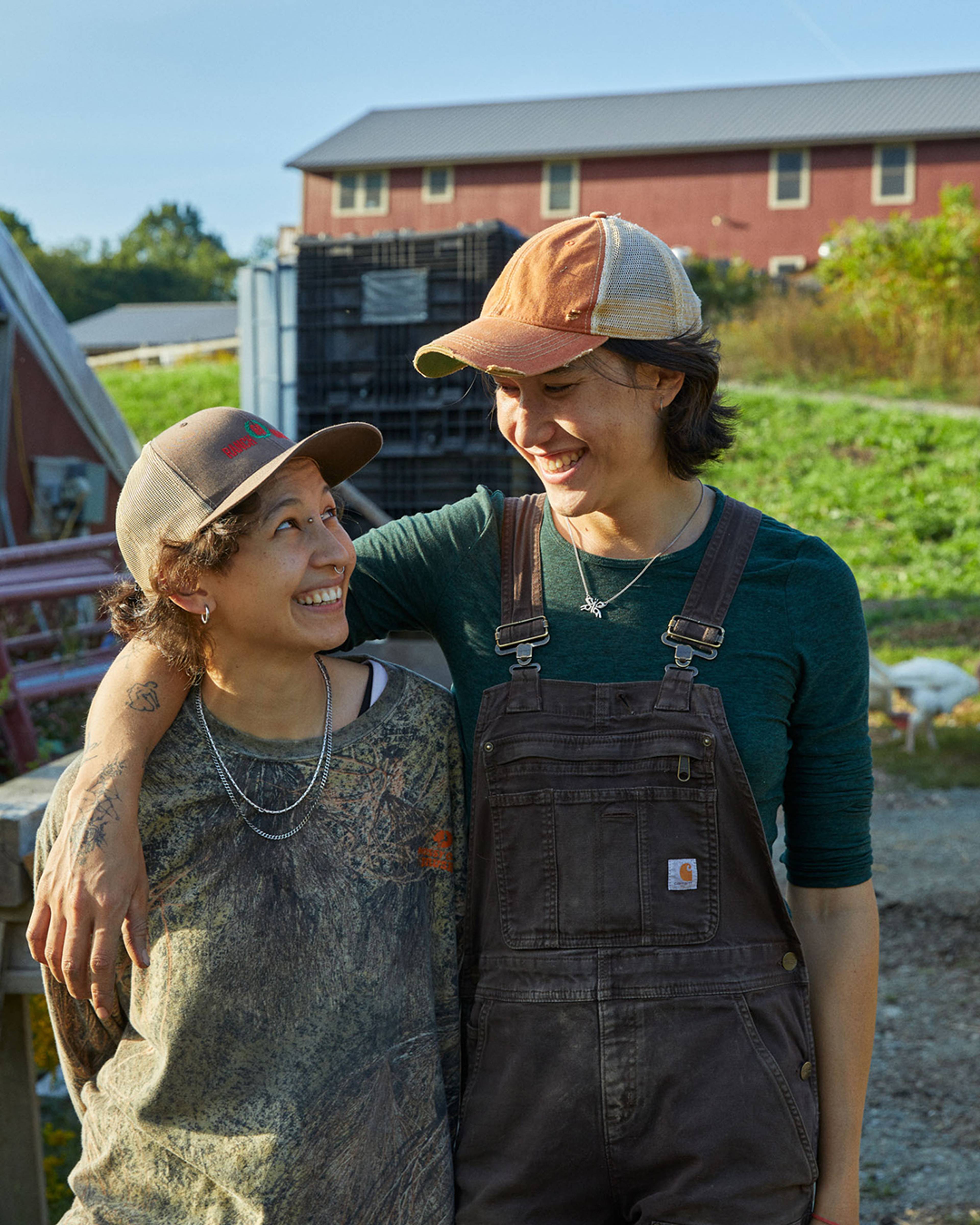
Gentle Time
Unceded Mohican land, Old Chatham NY, US
Grant: $10,000
Using this grant to purchase a refrigerated van will help Kaija, Salt and the crew at Gentle Time to not only open up access to their own culturally relevant, nutritious crops, but also develop a model for a cooperative with delivery service for other small BIPOC-led farms in Columbia county.
"A huge pull of doing this project is being able to bring other people from our community into this work… There are very few farms that one, grow culturally rooted vegetables; two, are safe for queer and trans people; three, are for BIPOC and specifically Asian folks - there just aren’t many of us out here."
Farm logistics are hard, and infrastructure has a huge financial hit. Using this grant to purchase a refrigerated van will help Kaija, Salt and the crew at Gentle Time tackle both. This one piece of investment will not only open up access to their own culturally relevant, nutritious crops, but also develop a model for a cooperative with delivery service for other small BIPOC-led farms in Columbia county. This means more opportunity, more sustainable sales which in turn means more stable employment, living wages for QTBIPOC farmers who in turn are able to show up wholly to take care of the land and each other.
Salt and Kaija told us that in Columbia county, there are 956 farms - three of which are Asian-owned. Both at Gentle Time and as two of the organizers of Choy Commons, a nonhierarchical cooperative of Asian led farms engaging communities in building food sovereignty for the Northeast, their focus is to build capacity for small farms through collaboration, to grow ancestral foods for community, to redistribute resources to provide food to those in need, and gather community in cultural practice.
"People are going eat what they’re familiar with, they want to eat what they’re comfortable with, they know what feels good in their bodies - what we’re trying to do is relocalize those cultural foods, to make sure they’re highly nutritious and grown at highly sustainable sustainable standards that regenerate the earth."
The impact of this work is evident within the context of Gentle Time. From developing varieties of Gai Lan - Chinese Broccoli - that suit the northeast climate to offering up this van as a shared community asset, the crew are relocalizing what is known and relevant to their Sino cultural backgrounds and diasporic in upstate NY - offering a nutritious, relevant alternative to the culinary staples that food citizens have been forced to source for decades from an intensive, opaque supply chain.
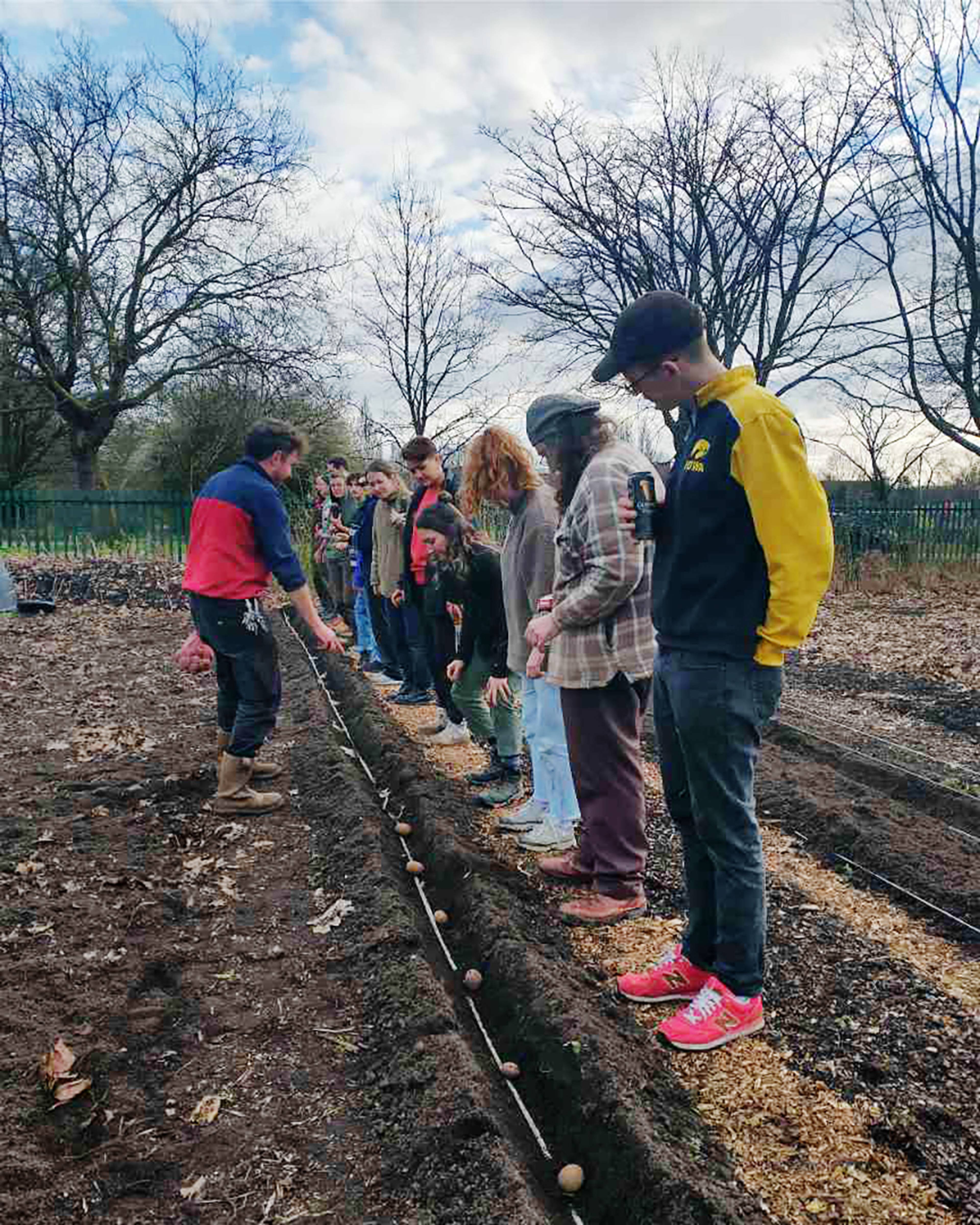
Manchester Urban Diggers (MUD)
Platt Fields Market Garden, Salford, Greater Manchester, UK
Grant: £10,000
"We know we’re not going to fix the food system by growing on a bowling green, but there are so many knock on effects: the training, the engagement with different ages and backgrounds, the community cohesion – it has changed our lives."
MUD will use this grant to set up a free, year-long market gardening course for young people in Manchester - prioritizing participants from communities for whom this type of education would usually be out of reach.
"We see ourselves as an incubator…when you move to the city as a student, or you grow up and there doesn’t seem to be many opportunities…we can offer that alternative that might not necessarily seem real or possible."
Rooted in a market garden within the city of Manchester, MUD has always had access and inclusivity at the heart of their project. The team has spent seven years building an incredible community of food aid and sovereignty projects, growers, chefs, schools, volunteers and customers - all of whom want to see opportunities flourish within good food and farming for young people in Greater Manchester, and will act as a support network for the course participants as their ideas and skills evolve.
By preparing a new generation of growers for the realities of running a profitable farm business, as well as equipping them with practical skills to grow according to an agroecological philosophy, this course will empower young people to view farming as a viable, sustainable and ultimately rewarding career.
We believe that this course cements a direct, guided path towards that goal, supporting individuals right from the early stages of learning to the reality of setting up their own project. Not only will this course foster a new generation of agroecological farmers in northern England, in doing so it will create vital, wide access to well-farmed, nutritious and culturally relevant food.
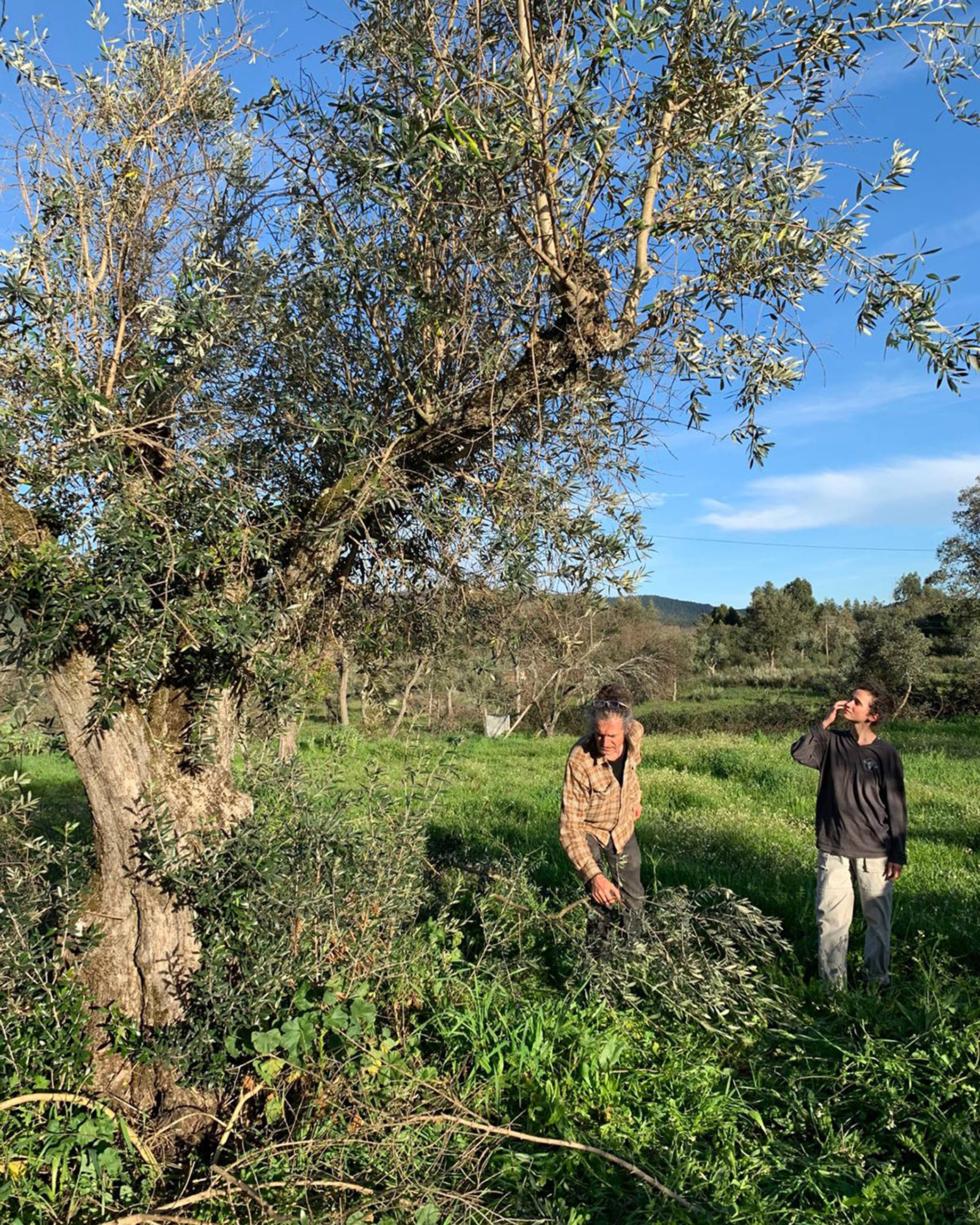
Maria Inês Correia da Silveira Catana
Portalegre, Portugal, EU
Grant: €7,250
This grant will enable Maria to purchase the equipment needed to convert an olive grove into a polyculture-dense agroforestry system and regenerate a traditional montado system. Long term, it will help develop a scalable model that not only protects vital cultural heritage but promotes the evolution of climate resilient, context relevant farming techniques.
"My main goal is to understand how to transform systems that people have around me in order to regenerate land. That’s why I’m focusing on the montado system and the olive grove, something that many people have and on which they usually practice very degrading techniques - you see the olives dying and they are losing their value a lot."
What struck us about Maria was not only her detailed plan of action, but equally her desire to share the results in as engaging and informative a way as possible so as to encourage others to follow in her footsteps. She will use this grant for the equipment needed to convert an existing olive grove into a polyculture-dense agroforestry system and regenerate the traditional montado system.
Regenerating the 2 hectares of traditional “montado” system - cork, pasture and shrubbery - involves managing water dispersion with keyline design principles, introducing adapted and biodiverse perennial pastures. In the 1 hectare olive grove Maria will be nurturing a polyculture-dense agroforestry system using a polyconic vase pruning technique, with support species including fruit and shrubs. On a separate 2 hectare plot, Maria will introduce forestry species, nuts, and mushrooms as cash crops.
A passionate advocate for resilient food systems, Maria’s experiences and studies have focussed on the systemic thinking and approaches that can provide farmers and relevant stakeholders with the necessary knowledge and tools to adopt regenerative practices, first locally and then at a wider scale. Building on her work at The Southern Lights, within the framework of Regenerative Farming Greece, and armed with this knowledge, Maria intends to take action on the urgent need for a regenerative movement in Portugal.
Here, subsidized large and intensive projects are fast driving natural resources and ecosystems into severely degraded landscapes. In Northern Alentejo, where Maria is based, extensive grazing operations paired with deforestation are depleting the region’s ecological entity and ability to self-regulate. Despite the obvious evidence, only a handful of people in Maria’s region are actively researching alternatives - funding her work is vital.
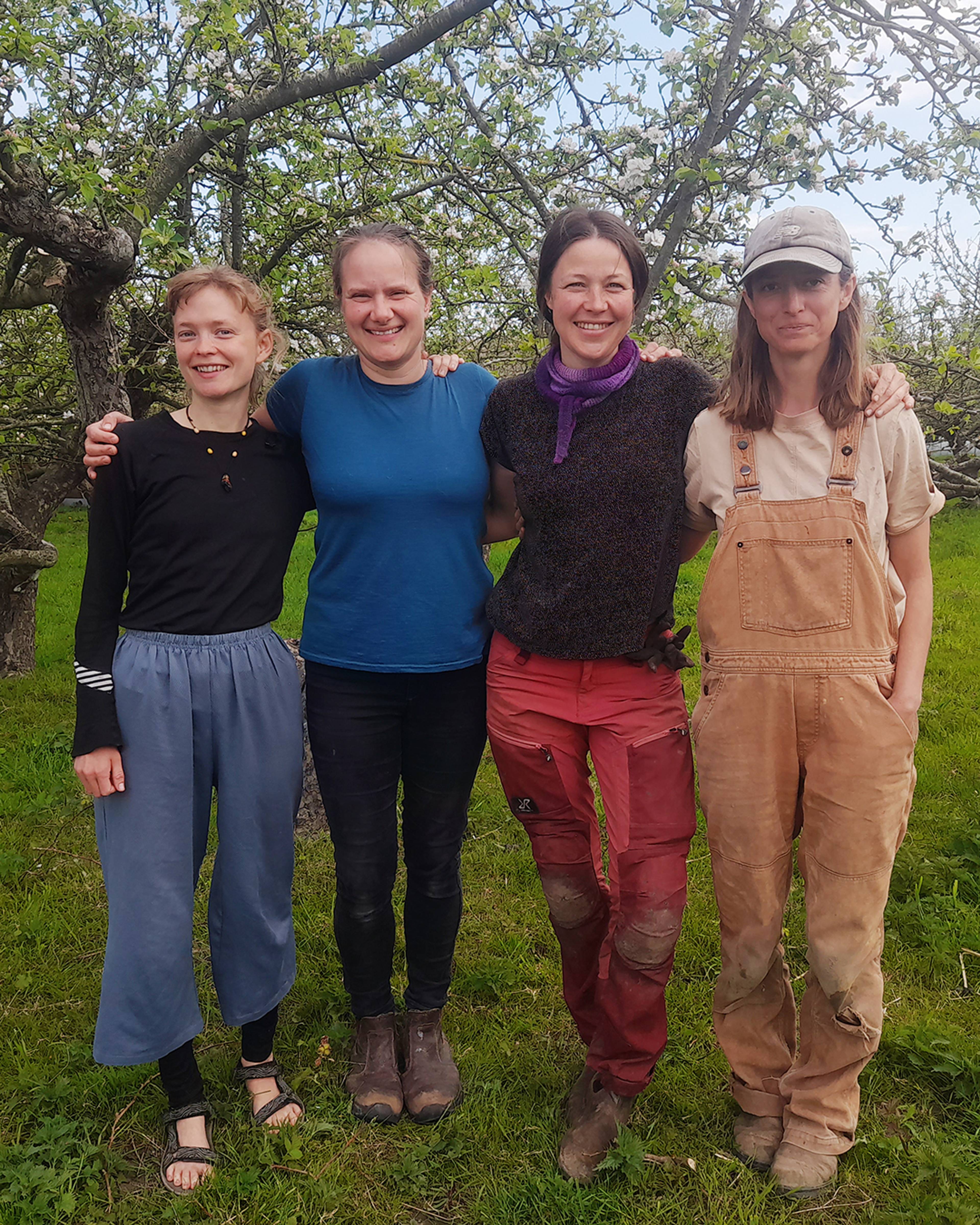
Farendloese Mosteri
A growing cooperative in Ringsted, Denmark, EU
Grant: €10,000
This grant has four direct impacts: protection of a heritage apple orchard, creation of rotational grazing pasture; incubation of an egg business for an entrant farmer, and diversion of flood water to create a lake and boost on-farm biodiversity. Plus, amplification of a model that eliminates barriers standing between young people and farming.
"When a farmer has to prioritize between investments in biodiversity or production, improvements to production sites almost always win. We really want to combine efforts on biodiversity as well as production."
Farendlose Mosteri is a 7 hectare, regenerative, chemical-free farm run on an ownership and organizational model that facilitates young farmers to upskill and start up their own first project at the farm. It enables innovation at low risk and operating costs and offers entrant farmers a foot on the ladder within a supportive community. In short, it’s a template that we believe should be widely replicated, to drive significant social and environmental transformation.
Bought at auction in 2015 by a group of determined young farmers, today the land is home to an 8 strong producer cooperative, a cohousing community and the Danish Regenerative Farm School. The farm is a living example of regenerative theory in practice - from the alley cropping with apples and vegetables, to rotational sheep grazing in fruit orchards, dry farming of tomatoes and seed saving programs. It is an ever-evolving model that asserts both the positive impact of these methods and that farming can be a viable career.
"We have so many young people coming through the farm who are in their mid 20s and not ready to buy their own farm, but are seeking a place where they have the opportunity to start their own production."
Today, climate change means that the farm is experiencing more and more rainfall every year, and their heritage orchard is increasingly vulnerable to diseases when flooded. In diverting water to the creation of a lake and building permanent fencing, this grant will not only protect the orchard but also diversify farm incomes and boost biodiversity - crucial on land surrounded by intensive monoculture farming and in a country where the landscape is entirely constructed through historial drainage and with almost no natural lakes left.
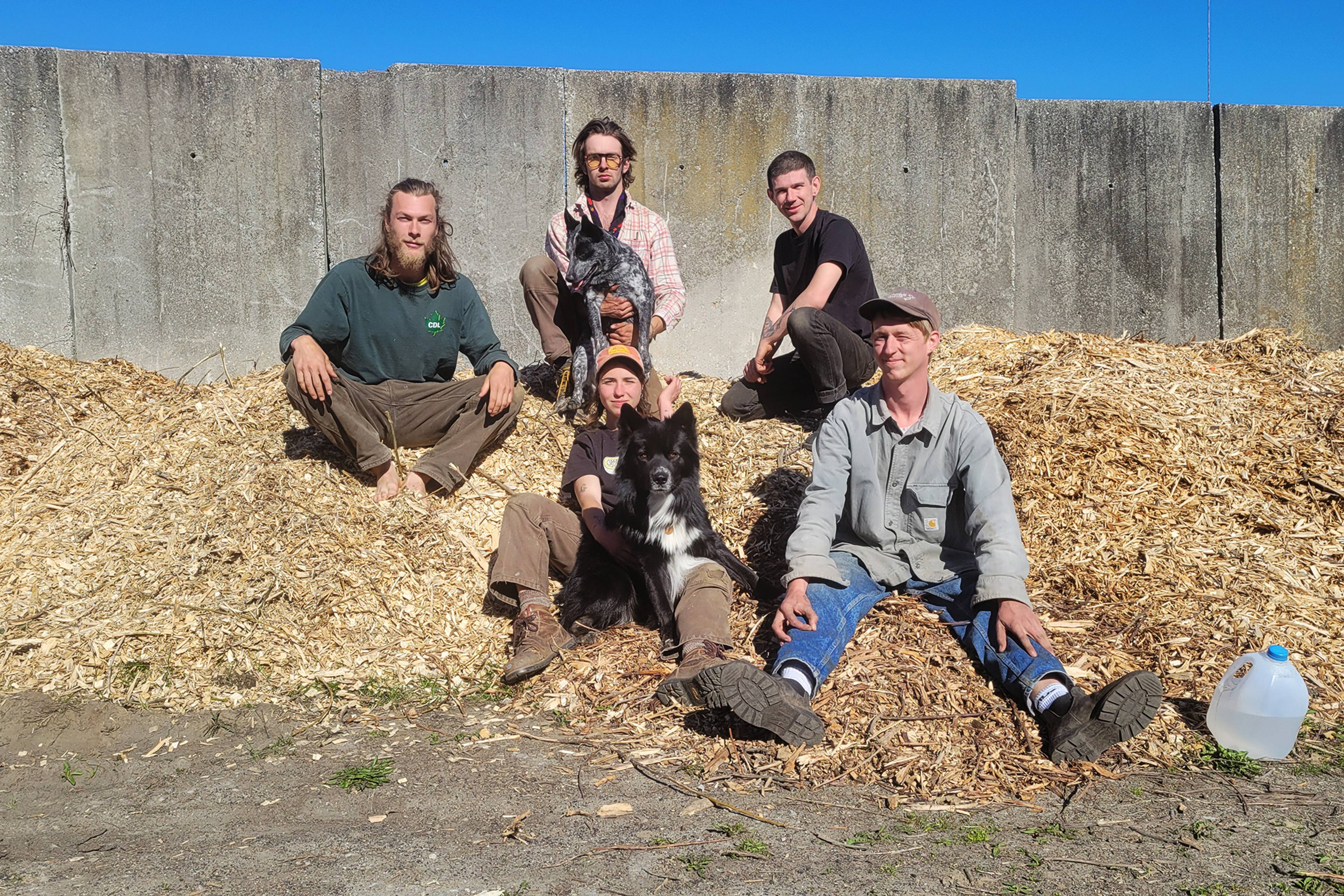
Tell A Tale Farm
Rutland, Vermont, USA
Grant: $7,725
"I worked on a farm and I was being paid $2.50 an hour. A lot of the old timers in Vermont view farm labour as low income, unskilled jobs. But the crew are athletes - they're very highly skilled, and they should be rewarded for that athleticism and dedication."
This grant should enable head grower Phillip, and the crew at Tell A Tale to build high tunnels, enable year round productivity, offer resilience against extreme weather and eliminate the need to work other jobs through the winter months. All moving towards the long term goal of proving that farming is a viable, rewarding career.
With the average age of a farmer in Rutland County standing at almost three times his age, Philip is determined to create meaningful job opportunities in Vermont that keep young people in the community, and prove that farming is a valuable, rewarding career.
"Being able to pay them [the crew] a living wage that they would see at a desk job is something that we’re really striving for, and we’re on track to do that. Working on a farm isn’t just a summer job – it can be a career."
What struck us about Philip was his determination. At 25 years old, Philip is the youngest farm business owner in the state of Vermont. Set on the farming path after reading Vandana Shiva’s Oneness vs. the 1%, his resolution to revolutionize the food system has always been equally social as environmental. Keenly aware of the issues that stand between young people and farming - access to land, fair wages, steady employment - Philip is intending to demonstrate a model for successful market gardening and create entrant job opportunities for other young people.
Long term, it requires land security on a bigger parcel of land, employing a crew of 6 to 7 people full time, who in turn can provide the local and regional communities with good, nutritious food. In Philip’s words, he’s working a “Robin Hood sort of situation” – leveraging higher value crops to restaurants to ensure prices remain accessible for hardworking locals. That means deeper roots: the opportunity to investigate New England apple varieties, cold hardy figs, and get Vermont known as a good producer of chicory and radicchio – a passion project of Philip’s.
Latest Stories
Voir toutWe exist to fix the food system.
People are more cut off from the origins of their food than ever. This makes flavor, nutrition and farming practices that protect the planet, almost impossible to find.
By working directly with growers, we create a more sustainable way forward for farming. By giving everyone the tools to understand the power of our food choices, we empower everybody to become drivers of change.
Now is the time for action. Join the food system revolution.

Go beyond four seasons
Each fruit and vegetable has its own season, with subtle shifts which happen every day. Follow their microseasons to unlock flavor at every stage.
WHAT’S IN SEASON?

Know where your food comes from
We know the name of the person behind everything we source. Recognize their growing artistry to find out exactly where your food comes from (and why that matters).
MEET THE GROWERS

Make your diet diverse
Our growers work with varieties chosen for quality and nutrition, not yield. By selecting their crops you keep heritage seeds in play, add to ecosystem biodiversity and preserve unique flavors.
GO #OFFTHEPASS
United States
© 2026 Natoora Ltd.
